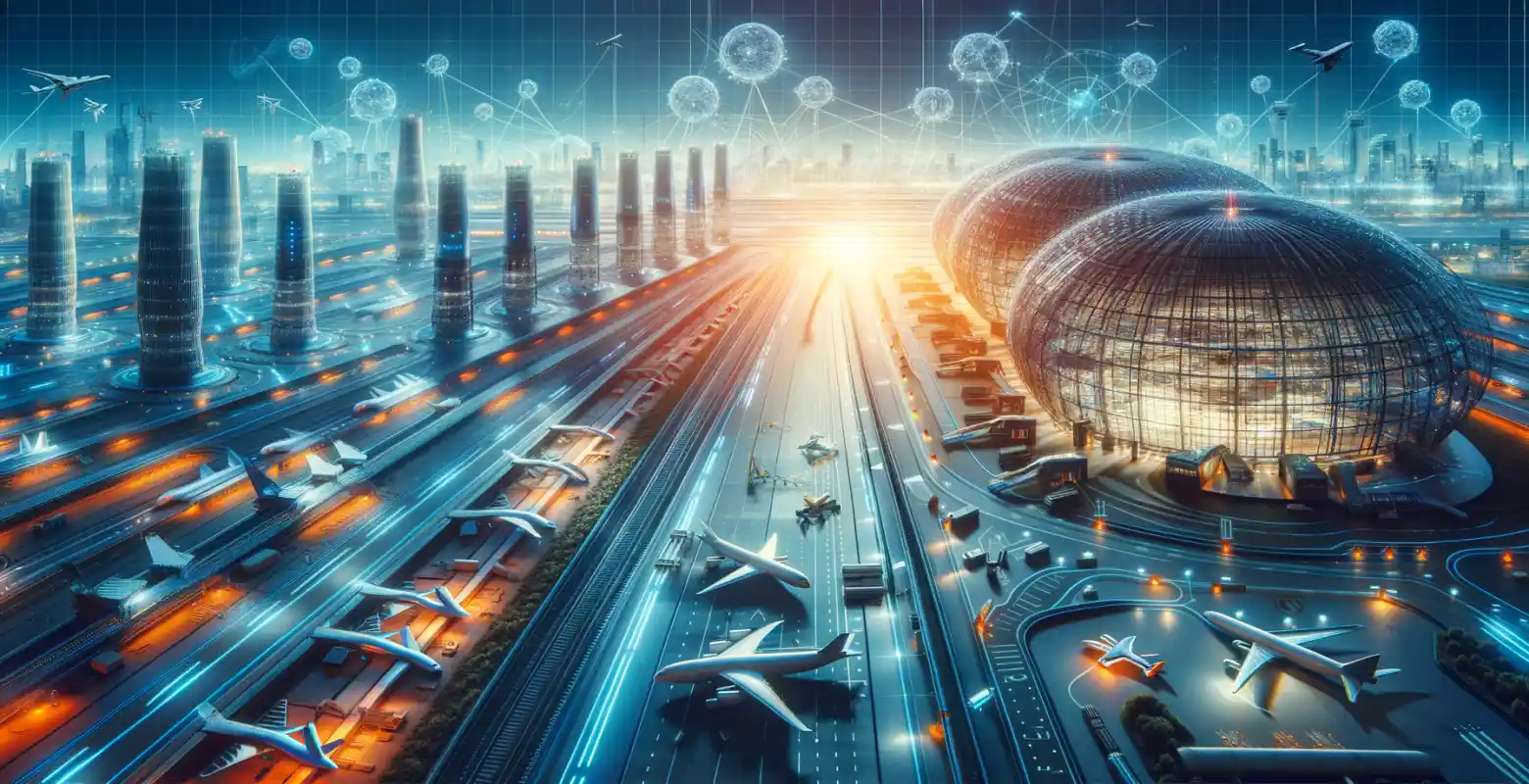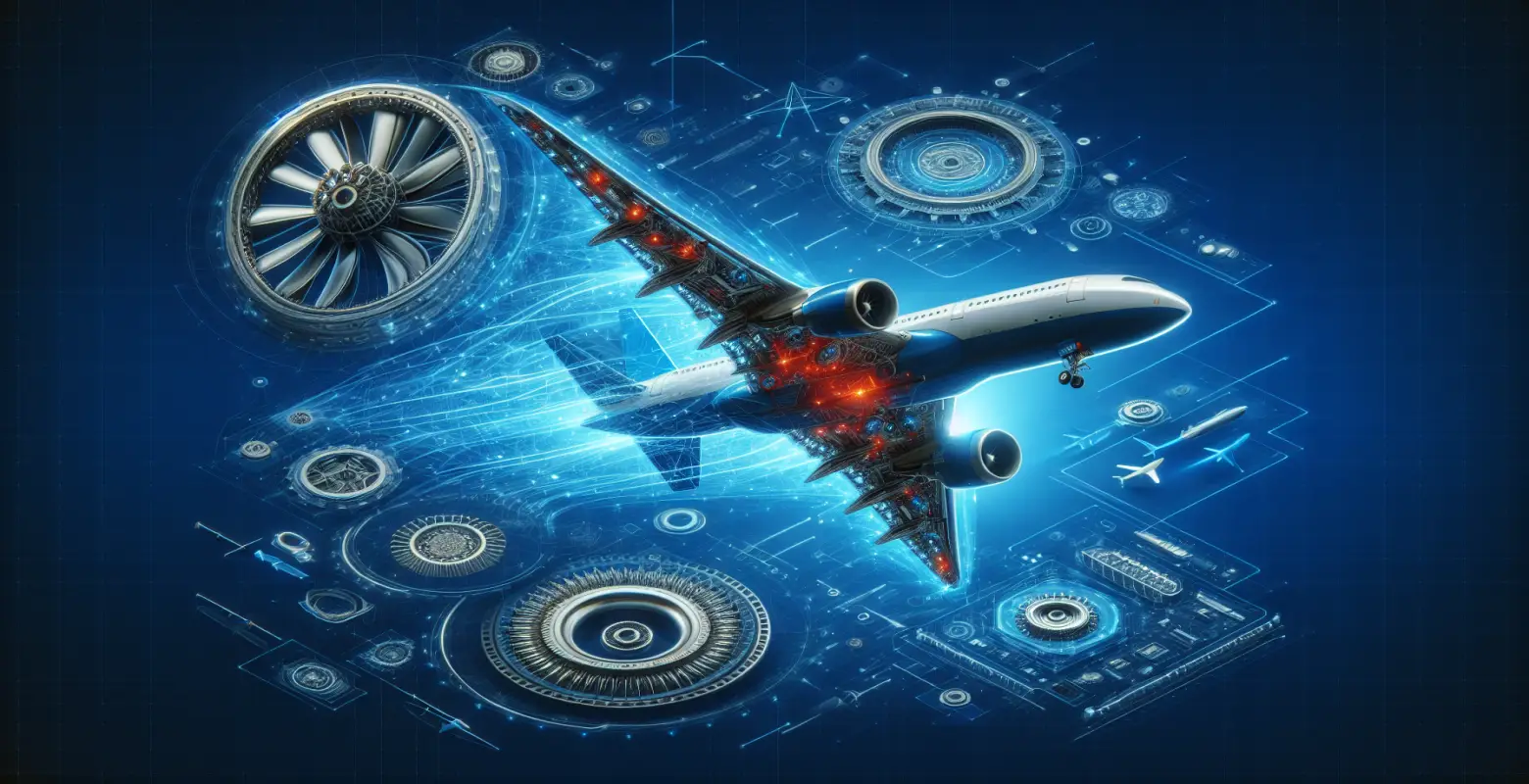Airports of the future - which investments will change the industry?
In today's rapidly changing world of aviation, airports of the future are becoming a key element in discussions about innovation and investment in the aviation industry. The growing number of passengers, technological advancements, and the need for sustainable development present new challenges for airports, but also open up a range of opportunities. In this article, we will examine which investments and technologies may revolutionize the functioning of airports in the coming years and what benefits may arise for passengers, carriers, and the environment.
Intelligent infrastructure and automation
As air traffic continues to grow steadily, airports are forced to modernize their infrastructure to meet new requirements. Intelligent airports is a concept based on the use of technologies such as the Internet of Things (IoT), artificial intelligence (AI), and big data to optimize airport operations. Automation of processes such as passenger check-in, security control, or baggage management allows for increased efficiency and reduced waiting times.
An example of such innovation is Changi Airport in Singapore, which successfully implements automated technologies, including autonomous vehicles for baggage transport and facial recognition systems for passenger check-in. As a result, the airport is able to handle a larger number of passengers while simultaneously enhancing their travel comfort.
Sustainable development and ecology
In the face of climate change and growing ecological awareness, airports of the future must focus on sustainable development. Investments in technologies reducing CO2 emissions, as well as in renewable energy sources, become a priority. Oslo Airport was one of the first to introduce biofuel to its offering for airlines, and Stockholm Airport plans to become carbon-neutral by 2025.
Another step towards green airports is investing in infrastructure enabling the charging of electric aircraft and implementing energy-efficient technologies in terminal buildings. Such actions not only reduce the carbon footprint but also lower the operational costs of airports.
Digital technologies and service personalization
Airports of the future increasingly prioritize service personalization, utilizing digital technologies for this purpose. Mobile applications that offer passengers personalized information about their flights reduce the travel-related stress and enhance the overall passenger experience. Modern airports also invest in the development of digital platforms that enable real-time passenger traffic management.
The use of beacon technologies, which allow for sending information to passengers' mobile devices based on their location, enables offering personalized offers and information about promotions in shops and restaurants at the airport. This not only increases customer satisfaction but also generates additional revenue for airport operators.
Safety and data protection
Safety at airports is a top priority, and technological developments offer new opportunities but also challenges. Modern security systems utilize biometrics, such as iris scanning or facial recognition, which speeds up control processes and enhances their efficiency. However, with the increasing use of biometric data, concerns about privacy and personal data protection arise.
Airports must invest in advanced data protection systems to ensure the security of passengers' information. Collaboration with regulatory authorities and compliance with international standards, such as GDPR, are crucial to building trust among users and avoiding potential threats.
Transport integration and accessibility
One of the directions for the development of airports of the future is integration with other means of transport. Airports become part of larger transportation hubs, offering passengers easy access to trains, buses, or public transportation. Good examples of this trend can be found in Europe, where airports like Schiphol in Amsterdam are integrated with the railway network, enabling fast and convenient travel between cities and the airport.
Such an approach not only improves airport accessibility but also contributes to reducing car traffic and emissions of pollutants in the vicinity of airport terminals. Investments in transportation infrastructure, such as high-speed rail connections and the development of metro networks, become essential elements of the strategies for the development of modern airports.
Challenges and future trends
While investments in the development of airports of the future bring numerous benefits, they are not without challenges. High costs of implementing new technologies, the need to adapt to changing regulations, and social resistance in some cases may pose obstacles on the path to their realization.
However, looking into the future, we can expect a further increase in the importance of digital technologies, sustainable development, and service personalization. The introduction of electric aircraft, further automation of processes, or the development of hyperloop as a new means of transportation may revolutionize the aviation industry in the future, making travel more passenger- and environmentally-friendly.
Summary
Airports of the future are a fascinating and extremely important topic in the context of global aviation development. Investments in intelligent infrastructure, sustainable development, digital technologies, and transport integration are key elements of transformations that shape the future of this industry. Although the implementation of these ambitious projects involves a series of challenges, the benefits resulting from their implementation are invaluable.
The transformation of airports not only improves the comfort and safety of travel but also contributes to a more sustainable development of our environment. We encourage you to continue following the progress in this field and engage in activities for sustainable and modern aviation. The airports of the future are already becoming a reality today, and their development is an opportunity for a better and more friendly journey for all of us.






Number of comments: 0